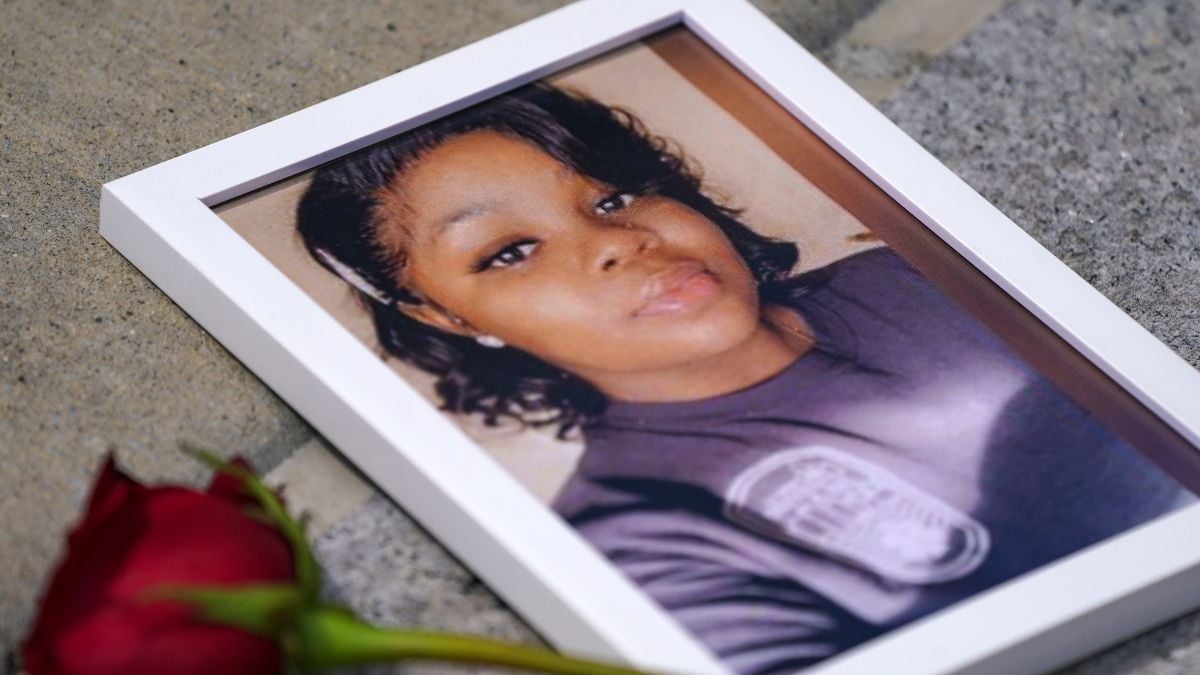
Former Louisville police officer Brett Hankison was sentenced on Monday to 33 months in prison for violating Breonna Taylor’s civil rights during a police raid in March 2020 that led to her death. U.S. District Judge Rebecca Grady Jennings made the decision, which also includes three years of supervised release after Hankison serves his prison sentence. The sentencing is a major moment in a case that has received nationwide attention and led to demands for police accountability.
Hankison was found guilty by a federal jury in November 2024 on one count of violating Taylor’s civil rights. The conviction came from his actions during the chaotic raid on Taylor’s apartment, where officers were trying to carry out a search warrant. According to The Washington Post, Hankison fired 10 shots without aiming through a window and a sliding glass door, both of which were covered by blinds.
While his bullets did not hit Taylor, who was shot and killed by other officers in the hallway, three of his bullets went into a neighboring apartment where a pregnant woman, her partner, and their five-year-old child were living. The jury’s decision confirmed that Hankison used excessive force and that his actions showed an intent to kill, even though no one was directly hurt by his gunfire. His conviction came after a previous federal trial ended in a mistrial in November 2023 and after he was cleared of state charges of wanton endangerment in 2022.
Officer who shot randomly gets off easy thanks to Trump
The 33-month prison sentence given by Judge Jennings was very different from what the U.S. Department of Justice had recommended. In an unusual step, the Justice Department, under the Trump administration, had pushed for an extremely light sentence of just one day in prison, which would have counted as time already served, along with three years of supervised release.
This recommendation came even though federal prosecutors had spent years building the case against Hankison. Judge Jennings openly criticized the Justice Department’s sentencing memo, calling its arguments “incongruous and inappropriate” and saying she was troubled that the department appeared to treat Hankison’s actions as “an inconsequential crime” that downplayed the jury’s verdict. She also said she was shocked that Hankison’s reckless gunfire did not cause more injuries to neighbors or his fellow officers.
#Trumputin DOJ proposes a 1-day sentence in Breona Taylor's police slaughter case, wants to invite convicted officer to WH to get the Medal of Freedom + a cigar https://t.co/rVKyqXUhop
— James S.Henry, Esq. (@submergingmkt) July 18, 2025
The Trump administration’s influence on the Justice Department’s shift in position was clear. The attorneys handling the case, whom President Donald Trump appointed, suddenly changed from the department’s earlier approach to prosecution.
Their sentencing memo minimized Hankison’s role in the raid, stating that he “did not shoot Ms. Taylor and is not otherwise responsible for her death,” and that he “did not wound her or anyone else at the scene that day, although he did discharge his duty weapon ten times blindly into Ms. Taylor’s home.” This sudden change by the prosecution, which at times sided with Hankison’s defense lawyers in arguing for a lighter punishment, upset many people.
The department’s reasons for a shorter sentence included claims that Hankison would face abuse in prison, that he has post-traumatic stress disorder, and that his previous trials had not ended in convictions. We’ll have to wait and see if Trump gives this felon a pardon, like others.
Family members, including Taylor’s mother, Tamika Palmer, had asked for the harshest possible sentence during the hearing. Their legal team called the Justice Department’s recommendation an “insult to the life of Breonna Taylor and a blatant betrayal of the jury’s decision,” pointing out how it seemed to disregard the jury’s verdict. They repeated calls for stronger accountability and shared concerns about what such leniency says about civil rights violations by police, especially when they involve Black Americans.
A lawyer said, “The judge did the best she could with what she had to work with. There was no prosecution in there for us. There was no prosecution in there for Breonna. … Brett had his own defense team — I didn’t know he needed another one.”







